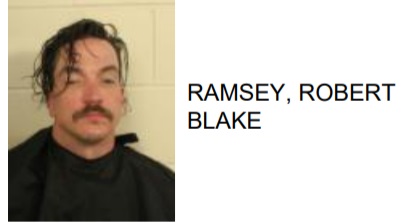The Supreme Court of Georgia on Monday issued an order suspending Judge Christian Coomer of the Court of Appeal.
According to the statement, the Judicial Qualifications Commission of Georgia (JQC) they determined that there was sufficient evidence that Coomer “poses a substantial threat of serious harm to the public or to the administration of justice”.
The motion to suspected Coomer came after formal charges filed by the JQC’s Director against Judge Coomer on December 28, 2020, alleging 26 violations of the Georgia Code of Judicial Conduct, as well as an Amended Complaint filed against Judge Coomer by the Georgia Government Transparency and Campaign Finance Commission (GTCFC) on November 23, 2020.
However, there is no affidavit or other verification by someone with personal knowledge of the facts that the allegations in the Formal 2 Charges and the Amended Complaint are true or supported by evidence. The motion also refers to extensive evidence allegedly supporting the Formal Charges that the Investigative Panel obtained during its investigation of Judge Coomer, but none of those materials have been submitted to this Court, much less in a form allowing this Court to consider them as evidence. Moreover, on December 30, 2020, Judge Coomer filed a “Consent to Interim Suspension.”
Judge Coomer does not admit that any of the allegations against him are true or could be proved, even conditionally for purposes solely of the motion to suspend and even without admitting whether the allegations, taken as true, would warrant a suspension under the standard set forth in Rule 15 (C). Instead, he “disputes the allegations by the JQC,” “denies that he violated the Code of Judicial Conduct,” and points out that “[t]he JQC has not filed any evidence with this Court to support the allegations in the Formal Charges.” Thus, the situation before this Court is unlike motions for interim suspension under Rule 15 (C) that the Investigative Panel has filed in some previous cases, which included exhibits such as arrest or search warrants supported by affidavits of law enforcement officers and not disputed by the judge at issue for purposes of the motion for interim suspension. In short, while the Formal Charges present extensive and serious allegations of misconduct by Judge Coomer, this Court at this time is not in receipt of anything that would be deemed evidence in a civil case and that we may properly consider in determining whether Judge Coomer’s continued service until the case against him is resolved poses a substantial threat of serious harm to the administration of justice. See JQC Rule 15 (C). See also JQC Rule 8 (“Except as otherwise provided in these Rules, the rules of evidence applicable to non-jury civil proceedings and the rules of civil procedure apply in judicial discipline and incapacity cases.”).
The Director has represented, however, that such evidence is available, 3 and so we will hold the motion to suspend Judge Coomer in abeyance and allow the Investigative Panel to present evidence to this Court to support the motion no later than January 8, 2021. It should be noted that unlike some previous motions to suspend that were filed and ruled upon before formal charges were filed against the judge at issue and thus were kept confidential, because Formal Charges against Judge Coomer have been filed and served, this order and related filings shall be filed publicly, although the parties may move to file particular pleadings and information, such as personal identifying information, under seal where that would be proper in a civil proceeding
For its part, Judge Coomer’s filing contends that, notwithstanding the failure of the Investigative Panel’s motion to satisfy the requirements of JQC Rule 15 (C), this Court may order him to be suspended with pay simply because he would consent to such a suspension, indicating that he has already entered a “voluntary self-suspension agreement” with the Court of Appeals. However, the Georgia Constitution vests in the JQC “the power to discipline, remove, and cause involuntary retirement of judges” for the reasons set forth in the Constitution, Ga. Const. of 1983, Art. VI, Sec. VI (a), subject to the order of this Court after review and pursuant to the JQC Rules reviewed and approved by this Court, see id. Par. VI-VIII.
The Constitution and the JQC Rules do not authorize a judge to stop performing his or her official duties – while continuing to serve in office and to receive pay – in response to a disciplinary investigation or prosecution by the JQC, by asserting that he is doing so with his consent or by agreement with his own 4 court.
The interim suspension of a judge is authorized only pursuant to JQC Rule 15 (C) by motion of the JQC Investigative Panel followed by order of this Court or pursuant to the provisions of JQC Rule 15 (A) or (B) for judges indicted for or convicted of a felony.
The JQC therefore deny Judge Coomer’s request that the Court enter an order suspending him with pay without any supporting evidence and without making the determination required by JQC Rule 15 (C) that an interim suspension is necessary because the judge poses a substantial threat of serious harm to the administration of justice. Melton, C. J., Nahmias, P. J., and Boggs, Peterson, Warren, Bethel, Ellington, and McMillian, JJ., concur.
PREVIOUS May 7 2020
An investigation has been launched by the GBI into the possibility of Georgia Court of Appeals Judge Christian Coomer defrauding an elderly client while he worked as an attorney and served as the majority whip of the state House of Representatives .
Reports said that 78 year-old Jim Fihart, of Cartersville, said that Coomer took advantage of him during a time in which he suffered from diminished mental capacity to make decisions.
Fihart said that he loaned $159,000 to Coomer’s holding company in March of 2018 with the promise that the money would be paid back in a year. However, the promissory note that was written said it was to be paid off in 30 years when he would be well into his 100s. The note listed Fihart’s property as security of the debt should it not be paid off.
Coomer has said that the property discrepancy is a “scrivener’s error”, meaning it was an unintentional mistake when writing the document. Coomer also immediately offered to correct the error when it was drawn to his attention.
Then in September that same year, Coomer, again though his holding company, borrowed another $130,000. This was to be paid off when Fihart would have turned 84, and was also unsecured.
Commer said that he advised Fihart to consult other counsel before issuing the loans. Promissory notes that are attached to the lawsuit reflect that, with memos signed by both men.
Coomer has also acknowledged that he drew up multiple wills for Fihart and initially made himself executor of the estate. Fihart’s lawsuit states that Coomer then made his wife the executor, giving Coomer’s wife control of distributing his estate.
Fihart alleges that Coomer should have known that he was impaired and unable to make reasonable decisions. Coomer argues that it wasn’t until 2019 that Fihart suggested that he was somehow impaired.
The state Judicial Qualifications Commission has also launched an investigation into Coomer.
Coomer said called Filhart’s allegations “outrageous.” He told the AJC in March, “I completely and utterly deny the allegations of fraud. I can’t deny it strongly enough, because it’s absolutely untrue.”
Below is a video CVN conducted with Coomer back in 2010.































